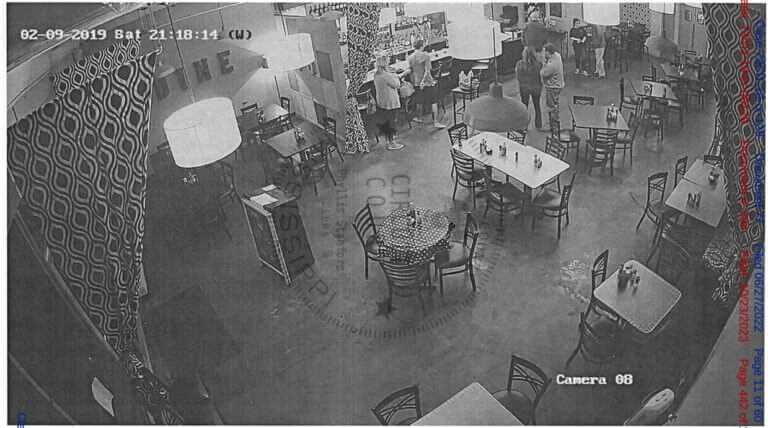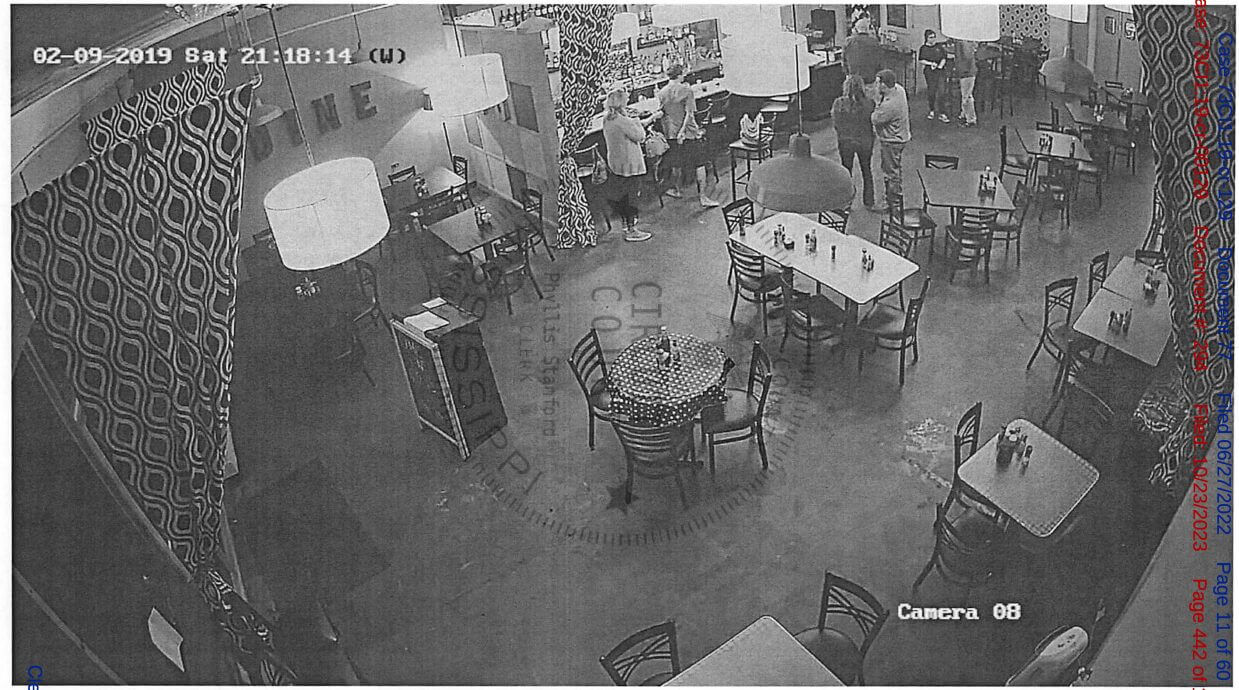

Double jeopardy does not apply, the state’s Court of Appeals narrowly said, when it ruled a former Ole Miss student acquitted by a judge should be tried again for the near fatal stabbing of a Tennessee man in 2019.
Union County Circuit Judge Kent Smith had ruled in 2023 that the prosecution violated Lane Mitchell’s constitutional right to compulsory process – specifically to command the victim to testify as a defense witness – in issuing an order of acquittal of attempted murder. The appeals court ruled the acquittal was not based on the evidence.
The 5-4 ruling sent the case back to the trial court. Appeals Court Judge John Weddle, formerly the district attorney of counties in northeast Mississippi, recused himself.
Mitchell’s attorneys did not respond to a request for comment about whether he will appeal to the Mississippi Supreme Court.
District Attorney Ben Creekmore recused himself from the case in 2021, which led the attorney general’s office to appoint two of its attorneys to prosecute the case. A spokesperson from the attorney general’s office confirmed the office would appoint prosecutors for a new trial.
In 2019, the then-18-year-old Mitchell stabbed Collierville resident Nathan Russell Rogers at the Tallahatchie Gourmet – a restaurant where Rogers had been a regular customer and visited after hiking in the area.
Mitchell said during trial and in court records that he believed Rogers had a weapon and he feared for the safety of a female waitress and his father who was working as a bartender. However, Rogers was unarmed.
Video footage from the restaurant also captured the leadup, stabbing and its aftermath. Stills from the video showed how Mitchell grabbed a knife from the bar and held it behind his back and watched for a few moments. As his father and Rogers began to struggle, Mitchell came up from behind Rogers and stabbed him three times in the neck.
Rogers nearly bled out and needed immediate surgery. As a result of the stabbing, he was diagnosed with post-traumatic stress disorder and was placed under his father’s conservatorship, according to court records.
Mississippi Today reported that Mitchell went on to attend another college in Tennessee and would have attended graduation before his trial.
Four days before trial, the defense tried to subpoena Rogers to testify. But when trial began and a jury had been impaneled, he did not show up. The defense filed a summons with a Tennessee court for him to be taken into custody and delivered to Union County, but the summons was never served.
The Shelby County probate court in Tennessee, which oversees Rogers’ conservatorship, quashed the request to bring Rogers to court in Mississippi, ruling that he was a disabled person who is incapable of testifying in any legal proceeding, including the one in which he almost died.
The Court of Appeal’s order notes that the defense did not attempt to appeal the probate court’s decision or ask for a continuance to appeal – ways to get Rogers to testify.
The appellate court’s majority opinion written by Judge John Emfinger focused on whether the court had the ability to hear the case and whether state law provided a valid way for the state to appeal.
Section 99-35-103(a) provides a way for appeals when an indictment is dismissed before a decision is made on the merits of the indictment.
“We find that subsection 99-35-103(a) does not contain any such limitation,” Emfinger wrote in the majority opinion. “Instead, it plainly and unambiguously applies to all efforts to dismiss a charging instrument, for any reason, at whatever time it may be filed.”
The majority also found that dismissing the indictment doesn’t prevent subsequent prosecution for the same offense. In appeal documents, Mitchell’s attorneys have said retrying him would violate his protection against double jeopardy.
Judges Jack Wilson, Anthony Lawrence III, David Neil McCarty and Amy Lassitter St. Pé joined the majority order.
Another focus of the decision was whether Judge Smith was correct to dismiss Mitchell’s charge and acquit him.
Smith identified the conservator, Bob Rogers, who is also the victim’s father, and his attorney as members of the prosecution team. During trial the judge bemoaned some of those actions, including how Bob Rogers was an impediment to the case and helped his son avoid testifying.
The Court of Appeals disagreed, saying Bob Rogers and his attorney were not part of the prosecution team, noting the state Supreme Court has determined that team consists of the investigative and prosecutorial personnel. The court also noted that Bob Rogers, as the conservator, was acting in his son’s best interest.
In a dissent joined by Judges Virginia Carlton, Deborah McDonald and Latrice Westbrooks, Chief Judge Donna Barnes argues the court does not have authority to hear the state’s appeal, so it must be dismissed.
The statute in which the state appealed has limited exceptions, and interpreting it as the majority does disregards plain reading of the statute and Mitchell’s constitutional rights, according to the dissent.
Timing of when an indictment can be dismissed matters because it can bring up concerns about double jeopardy – the protection of being tried twice for the same offense. Jeopardy attaches when a jury is impaneled or a trial begins where guilt may be imposed, which is what happened in Mitchell’s case.
In a separate dissent, Judge Latrice Westbrooks agreed with Barnes and emphasized the trial court’s constitutional and procedural rationales to enter a judgment of acquittal for Mitchell.
Westbrook said that it’s the state’s responsibility to ensure its primary witness is available and present to testify, and allowing the ruling would be a “double standard.” This is in contrast with how a trial may proceed if a defendant fails to appeal, she wrote.
Like Barnes, she disagreed with the majority of justices that the state had a legal means to appeal, including potential concerns of double jeopardy.
“The majority’s refusal to properly recognize the limits of our jurisdiction over an acquittal turns decades of constitutional law and criminal procedure on its head.”
- State Supreme Court considers reviving former Gov. Phil Bryant’s lawsuit against Mississippi Today over welfare scandal coverage - February 18, 2026
- Winter storm update: Mississippi still waiting on fed declaration for individual assistance, lawmakers crafting plan to fund recovery - February 18, 2026
- Shy of special session, Mississippi school choice appears dead - February 18, 2026